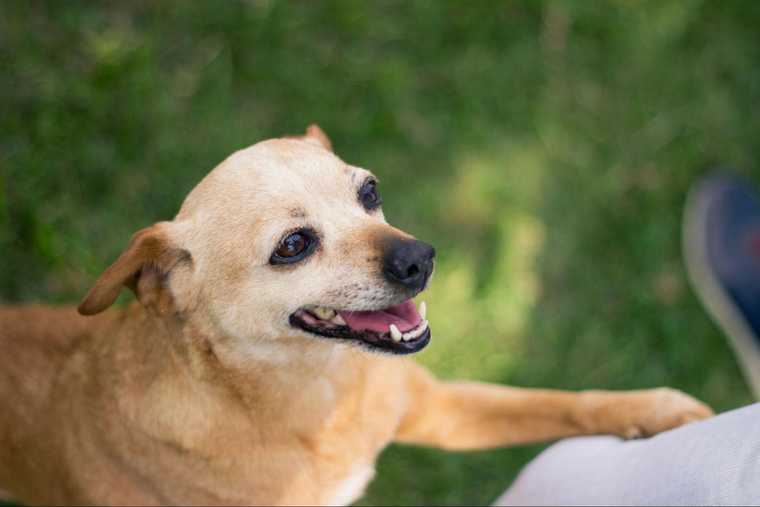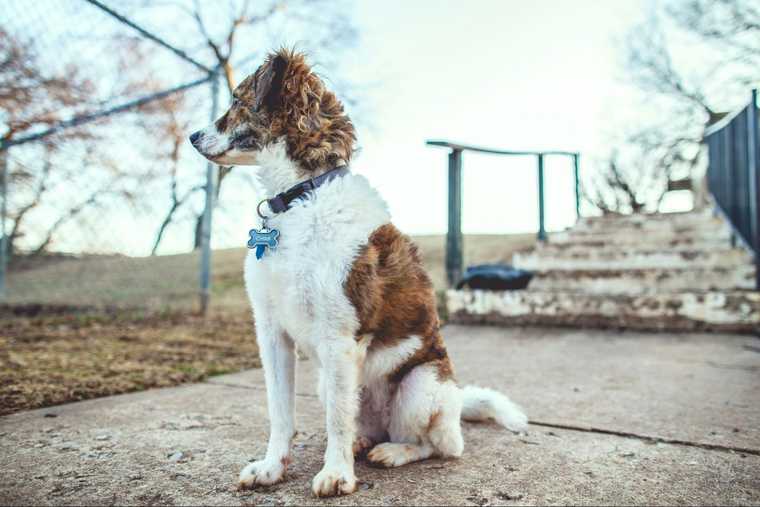How to Teach Your Dog Off Command

Whether you own a labrador or a Yorkie, teaching your dog the “Off” command is essential for them to understand where they can lie down/sit and where not. Your life will be much simpler when you train your dog to get off objects you don’t want them on. In addition, like “Leave it!” or a reliable call, the “Off command can help ensure your dog’s safety in various circumstances.
Check out our guide on how to teach your dog off quickly and efficiently. We’ll discuss the training process itself, as well as common mistakes many dog parents make. Let’s dive in.
Stuck teaching your dog the “Off!” command without progress? We’re here to help!
Before You Start the Training
Do you want the training to run smoothly? Prepare carefully and get into the right mindset before you begin. Your success will depend on your readiness to launch a full-scale training process.
Here is what you need to teach your dog the “Off!” command:
- The treats your dog enjoys to provide good motivation
- Time to practice the command daily
- Patience and enthusiasm about the process
How to Teach Your Dog Off in Everyday Scenarios
1. Practice the “Off” Cue
Let’s model a situation: You notice your dog getting on the couch but don’t want them to be on it. When you see this type of undesired behavior, it’s time to pick up a treat and start acting.
Give a verbal cue: “Off!” and lure your dog down with some food. Keep the treat close to the dog’s nose, and bring your hand down. When your dog gets off the couch and touches the ground (all four paws), praise and treat your dog with a reward.
Remember to choose high-value treats that your dog truly enjoys. It will encourage them to follow the lure and help acquire the command quicker. Also, keep the command simple and always the same, such as the one-word cue “Off!” to avoid confusing the dog.
If you’re wondering how to teach your dog off effectively, pay extra attention to arranging regular command practice. Your dog will need time to build new neuro connections and start associating “Off!” with a reward. Consistency is of paramount importance to ensure proper training results.

2. Introduce Your Dog to Other Common Scenarios
The “Off!” command is something you will use regularly in various environments. That’s why it’s vital to practice the cue in everyday situations. Expand the command to include daily activities such as walking in the park or having visitors at your place.
Keep repeating the same procedure in a new environment:
- Say “Off!” when you don’t want your dog to be on something like a couch or a bed
- Lure your dog with the treat to make all their paws touch the ground
- Don’t forget to praise your dog and offer them a treat

3. Make the Dog Work for the Treat
When you train your dog to react to the “Off!” command, there is a danger of teaching them that jumping on something earns them a delicious treat. As a result, instead of stopping unwanted behavior, you may encourage your dog to exhibit it. Let’s discuss how to teach your dog off in such a case.
We recommend complicating the command by adding another cue. For example, you can practice the steps described above but give the dog more commands, such as sitting down or lying down, before offering a treat. Reward your dog with a treat only after the dog follows the extra command. It will help you break the association your dog developed that jumping on an object equals getting something tasty.
What Not to Do When You Teach the Dog Off
Though teaching your dog “Off!” may seem simple and intuitive, some dog owners encounter difficulties in training.
Here are some common mistakes to avoid:
-
Inconsistent training: We can’t emphasize regularity and consistency more. Practice daily on different occasions. Use a leash to limit your dog’s options, and ask your dog to sit before they greet other people.
-
Scolding a dog: Remember to use a positive reinforcement approach only. Don’t punish or scold your dog for exhibiting undesired behaviors. Instead, use rewards and encouragement to motivate your dog to follow the command.
-
Losing Patience: No dog is born understanding what is acceptable for humans, so it’s our job as dog parents to teach them obedience and good manners. Stay patient in the training process, and give your dog time to adjust to your rules.
Wrap-Up
Teaching your dog the “Off!” cue is necessary to train them to get off some objects you don’t want them to be on. The key to successful command training is observing your dog’s behavior. Practice consistently in various circumstances to maximize the training results.

Woofz Content Manager with a deep passion for dogs and a strong affinity for positive reinforcement training methods.

Experienced dog trainer with Bachelor of Science Degree in Animal Behavior. Diplomaed dog nutritionist. CFBA Accredited Canine Behaviorist